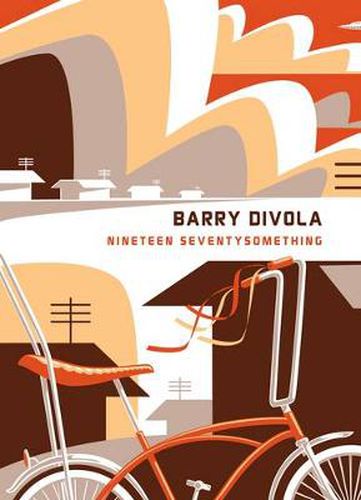Readings Newsletter
Become a Readings Member to make your shopping experience even easier.
Sign in or sign up for free!
You’re not far away from qualifying for FREE standard shipping within Australia
You’ve qualified for FREE standard shipping within Australia
The cart is loading…






Barry Divola’s Nineteen Seventysomething is a requiem for bygone days of nineteen-seventies Australia. In the fictional suburb of Braithwaite, we meet Charlie during the listless weeks of his sweltering summer holidays. Against a background of garage rock, transistor radios and a whole lot of vinyl, Barry Divola deftly evokes that awkward, exhilarating journey from childhood to adolescence. Told with humour, poignancy and authenticity, Nineteen Seventysomething marks the familiar stages of teenage awakening - in friendship, desire and love.
$9.00 standard shipping within Australia
FREE standard shipping within Australia for orders over $100.00
Express & International shipping calculated at checkout
Barry Divola’s Nineteen Seventysomething is a requiem for bygone days of nineteen-seventies Australia. In the fictional suburb of Braithwaite, we meet Charlie during the listless weeks of his sweltering summer holidays. Against a background of garage rock, transistor radios and a whole lot of vinyl, Barry Divola deftly evokes that awkward, exhilarating journey from childhood to adolescence. Told with humour, poignancy and authenticity, Nineteen Seventysomething marks the familiar stages of teenage awakening - in friendship, desire and love.
Cicadas. Variations of brown. Dragstar handlebars. Pop music. Barry Divola’s new collection of short stories Nineteen Seventysomething oozes those hazy summer afternoons when time dissolved and beanbags rustled in our struggle to regain composure because THAT boy or THAT girl had just entered the room.
Laced with reflection, these stories are written to transport us back to teenage days before the world changed, before we knew our dreams might never come true, before we fully understood the dynamics of friendships. Seemingly gentle but exposing the violence and torment of teenager-hood, Divola dips in and out of, what could almost appear autobiographical, reminiscence. Some stories follow a narrative, some meet up months later. Some just sit staring back at us. With a slightly melancholic, or even mournful eye, he shows us freshly formed teenagers who remind us of someone, someone perhaps a bit like us, if, like me, you are white, middle class and now 40-something. Divola’s stories are steeped in the awkwardness of those years. He takes us back to before we grew up.